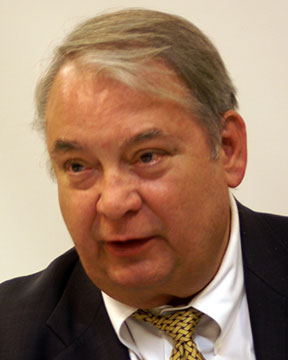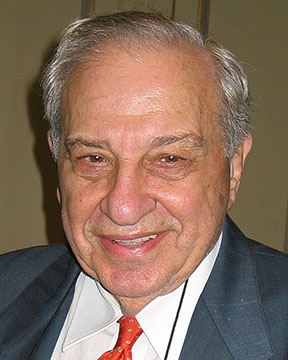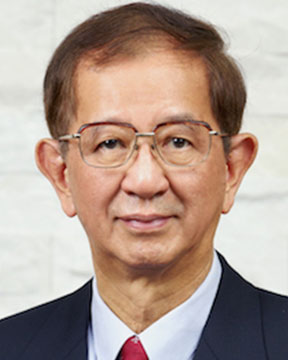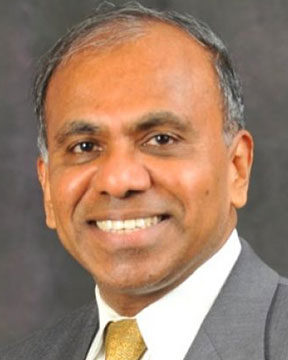



















Business owners, companies, decision-makers cannot ignore the impact of AI "Artificial Intelligence" in providing efficiencies, statistical analysis, and speed in the decision-making analytical context.
However in today's ever-changing global environment, the role should AI process play in the decision-making process ? Are there decisions that can be delegated to AI predictive conclusions ?
Does AI provide an answer to both human errors ?
This session will examine the proper role of AI in charting a course for the future. Decision-makers clearly understand they utilized AI for effectiveness and at the same time assess its limitations. Session will further explore where AI and human judgment coalesce and diverge. The participants will be encouraged to actively participate with examples within their own working environments.

"The application of AI to the legal sector requires a combination of experience in the field, in annotated content and technical expertise: you cannot simply throw AI into legal data and expect good results." For this reason, I believe that "the more lawyers know how AI effectively works, the more comfortable they will feel about it. It is important to understand how artificial intelligence algorithms use data and what its consequences may be on the performance of an artificial intelligence system. People are afraid of what they don't understand, so it's important that they take the time to get to know the big picture of AI and how it applies to the legal."
For an AI model to behave in a way that is useful to lawyers, we must train it with data that makes sense and is valuable to lawyers. We need to tell the model what part of the data is important to the behavior we're trying to mimic: it takes experience and mastery of the subject matter to understand which parts of the data should be trusted and which parts should be ignored to make a decision."

As per the goals defined by the UN, sustainable growth can be achieved through innovation and sharing information being the main components of SDG 9 (develop industry, innovation, and infrastructure) and SDG 17 (revitalize the global partnership for sustainable development .
Since commerce, trade and all industries are increasingly becoming cyber-dependent, it would be compulsory for every state to set and implement a cybersecurity strategy for a safer cyberspace and enable sharing of information when possible and when it does not infringe certain privileges.
In a symposium centered on the sustainable industrial development, it would be essential to analyze how Cybersecurity and Legal Professional Privilege can essentially and positively contribute to achieving related goals of sustainable development and industrial growth or at least in safeguarding their main objectives.

The purpose of Blockchain is to use technology to supplant the need for (and expense of) intermediaries in inter-party transactions. Global business entails interactions between scores of “arms-length” parties. This necessitates third-party intermediaries to verify the voracity and performance of each participant. Whether confirming ownership, determining that delivery occurred – on time and conforming with expectations, or ensuring that upstream suppliers and downstream purchasers maintain product quality standards, these business models require significant overhead in monitoring and authentication.
Blockchain and other Distributed Ledger Technologies remove intermediaries from business transactions. It allows “strangers” to transact with each other in a streamlined, trustless manner. Opportunities abound for businesses to capitalize on this technology as providers and users. We will discuss best practices of implementation and use, challenges like GDPR, and monetization strategies for Blockchain and DLT. We will also examine sustainable system options that ensure Blockchain and DLT will best use a business’ available resources.

‘Be ye never so high, the law is above you’. September 2019 saw the handing down of a tumultuous judgment by the UK Supreme Court, declaring that the Prime Minster, Boris Johnson had acted unlawfully when he advised the Queen to prorogue parliament for five weeks during the key and final stages of debates in the run up to the proposed Brexit Day on 31st October. The Brexit crisis has split the nation, and the constitutional significance of this ruling has been equally as divisive. The overwhelming question amidst all of the turmoil is: ‘What happens now?’ From this, we are greeted by a plethora of trickle-down queries. Can Brexit be done? Will it? On what terms? On who’s terms? And what will be the lasting impact on the UK and the UK’s position globally in the future? This session addresses all of these questions and more, looking at the sustainability of Brexit and what changes this will herald in both the legal sector and commerce in general.
Keywords:
In 1946, Winston Churchill coined the now well-known phrase ‘The Special Relationship’ to denote the political, economic, and historical relations between the United States of America and the United Kingdom. Over the years, leaders from both sides of the Atlantic have shared in this set up. However, in light of the Brexit debacle that is ongoing in the UK, how will this impact our symbiotic relationship going forward? The ‘New’ Special Relationship between the current British Prime Minister, Boris Johnson and the current President of the United States, Donald Trump may be touted as being based on mutual respect for one another, but will this respect translate into a solidified trade agreement when, and if, the UK leaves the European Union? The recent UK Supreme Court judgment regarding the illegality of the parliamentary prorogation sheds a glaring spotlight on the current state of affairs, and this session addresses whether the Special Relationship will be sustained post-exit day. Whenever that may be….
Keywords:
There are many factors that may cause a business to expand internationally – searching for new markets, attracting capital and acquiring key resources may be some of the them.
In conducting business on an international level, it is vital to take into account the correct legal considerations, in order to ensure its long-term survival. The presentation will explore key matters that need to be evaluated by entrepreneurs and investors in safeguarding their rights when conducting business internationally. In this context, factors, such as choosing the right jurisdiction for structuring the business, setting the right structure between the various stakeholders, and avoiding obvious pitfalls will be explored, by analysing how these may affect the successful enforcement of one’s rights in litigation. Ensuring that the chosen jurisdiction offers adequate legal protection, anticipating the ability to recognise and enforce judgments cross-borders, and applying for injunctions when need arises will be some of the topics to be examined.
The presentation will consider the example of Cyprus and will explore the practical considerations for structuring business and resolving disputes in Cyprus.

Simon Davison is a Director of Investigations at AnotherDay; a risk, security and investigations consultancy based in London and the Middle East. AnotherDay work with clients around the world to protect their firms from a variety of risks; from terrorism, war, crime to state sponsored spying.
As co-founder of the investigations team, Simon conducts numerous criminal investigations and private prosecutions, assisting victims of crime in pursuing justice.
AnotherDay also supports international law firms in a variety of ways, such as civil litigation support, asset tracing and intelligence work in challenging jurisdictions around the world.
Before AnotherDay, Simon was a detective in the Flying Squad in the Metropolitan Police in London, investigating armed robbery and serious and organised crime.
In this presentation, Simon will be providing an overview of private criminal prosecutions in the UK, and explain the process of seeking justice without state assistance.
Simon will also be discussing the benefits of covert investigation (such as surveillance), their applications and use in a variety of litigation.

Start-Ups. Symbols of innovation and commerce. Yet, many new businesses can find the process of ‘starting- up’ mired in a whole host of employment law related issues. In order to successfully wade through these murky waters, a clear understanding of the underpinning (and sometimes competing) legal frameworks is essential. This session offers an insight into some of the most common pitfalls that impact these business models, and how to avoid them to maximize the longevity of these new ventures. We will explore key issues such as how to establish workable renumeration models, attract and retain talent as well as how to protect the business itself, pairing them with practical and sustainable solutions for both now and in the future.
Keywords:
The law is dangerously lagging behind today’s ever more digitalized world. Technologies such as Facial Recognition and Biometric Data Stores are on the rise, used in an effort to trace criminals. However, in light of the recent reports of defunct or inaccurate software, incorrect matches, and innocent arrests, has the law harnessed this power properly? Or should we revert to lip-reading as per HAL 9000 in the Kubrick masterpiece 2001: A Space Odyssey? This paper will explore emerging technologies and the peaks and pitfalls of their use in the context of fighting Financial Crime. Is Blockchain the way of the future in terms of asset recovery and tracing? Is Facial Recognition software akin to electronic tagging? In our bid to fight fraud, have we sacrificed our privacy? These are just some of the questions in store for this discussion.
Keywords:International trade tariffs (read taxes) are in the news globally and are by their nature politically charged. Consequently, a full understanding is necessary, of both pluses and minuses, to critically evaluate their efficacy .
Non tariff barriers to trade (NTBs) will also be examined to see how they are used to manipulate the trade channels.
NTB’s, sometimes called "Non-Tariff Measures (NTMs)" are any trade barrier that restricts imports or exports of goods or services through mechanisms other than the simple imposition of tariffs. These include import licensing, rules for valuation of goods at customs, pre-shipment inspections, rules of origin ('made in'), and trade prepared investment measures.[2]
This segment will focus on the key drivers, politically, economically and socially, to create a framework for analysis that is free of bias or local “fake news” spin. The goal will be to communicate indicators that effectively guide the participants to a reasoned understanding and appropriate analysis of policy choices, and their impact on cross-border transactions.

In the legal field, various tasks, which were traditionally provided by practicing lawyers, are being replaced by Information Technology (IT) and Artificial Intelligence (AI).
In the area of drafting or reviewing a legal contract for the clients, many types of software have been developed and are being used by the law firms or directly by the clients. A brand-new concept of “Smart Contract” was invented and a structure based on the concept is being used without any assistance by the lawyers.
In the area of finance, Initial Coin Offering (ICO) is being used as a powerful fundraising method instead of the traditional method of Initial Public Offering (IPO). The new method enables a business corporation to efficiently fundraise without or with less assistance of the securities companies as well as the finance lawyers
In the area of M&A, a due diligence process can be carried out now by many types of software for this function. The software can automatically review digital documents which was collectively gathered in the “Digital Virtual Room”. Demand for the young associate lawyers for this kind of tasks are decreasing due to the introduction of the software.
In the area of litigation, especially in the process of “Discovery” in the US, many types of software for this function have been developed and being used in the actual litigation process. Demand for the young associates for this kind of tasks are decreasing as well.
One of the most remarkable phenomena is the drastic development of Online Dispute Resolution (ODR) has been drastically developed.
In the US, powered by a number of private ODR vendors, ODR is now widely used in the private sectors as well as in the governmental and judicial sectors. The number of filing cases in the ODR for an e-commerce platform vendor in the US has become more than sixty million, which number is bigger than the number of all the filing cases in the State Courts and the Federal Courts in the US. In Europe, the use of ODR has been encouraged in the EU by the ODR Regulation and the ADR Directive in 2013 and ODR is being gradually used now. A trial for the world-wide capacity-building was aimed by the United Nations Commission on International Trade Law (UNCITRAL) and is now aimed by Asia Pacific Economic Cooperation (APEC).
The speed of development of ODR is being accelerated now by the actual demands and by the legal instruments above described. It is changing the traditional features of the dispute resolution systems including the National Courts. Moreover, with the use of AI as a provider of settlement plans in the mediation process or as a decision-maker in the arbitration process, ODR will become much more powerful tools in the dispute resolution. In other words, human beings may be replaced by AI even in this field.
What is a role of lawyers in the future?

Science and technology have a profound effect not only in society as a whole but in the legislative process of creating new laws and applying them in the practice. Science and technology are always 10 steps ahead of the legislative process and have a distinct influence on the way the law are applied or enforced. In this paper, numerous example on the role of science and technology are given and an analysis is done to reflect their importance.
Keywords:A look at the modern lawyer’s role in your organization to maximize profits and minimize liabilities in the next generation.
In this expanding global environment, the role of the lawyer has expanded as well and therefore an attorney’s involvement in the day-to-day operations of an enterprise requires diversified skills. Lawyers must be able to turn around immediate advice and grasp all facts in addition to obtaining full knowledge of operations and goals of the enterprise to give effective and comprehensive legal and business advice.
Malcolm S. McNeil will give an overview of the requisite skills and provide an overview of the legal track of seminar sessions that will be offered to the attendees during the Symposium.
United States, the largest economy in the world, is a consumer-driven market, with over 300 million people and growing, the U.S. offers an abundance of opportunities for businesses of all sizes to grow and prosper, and the U.S. remains a major key trading partner and market for international companies around the world.
Recent developments in the United States has resulted in significant changes in U.S. tax and trade policy, as always, big change presents big opportunities for risk as well as reward, despite of the changes in tax and trade policy the U.S. remains an attractive jurisdiction for foreign inbound investment, and is the largest recipient of foreign direct investment (FDI) in the world.
One size doesn’t fit all, not all foreign commercial and industrial enterprises are the same, and the commercial and industrial differences will translate into structuring differences when the foreign inbound investor enters and approaches the U.S. market.
“Insufficient facts always invite danger”, our paper/presentation will define the spectrum of U.S. taxation and provide the road map and guidelines on the choice of U.S. business entities and income tax implications and filings in structuring a U.S. inbound investment/business for the foreign enterprises.

Ponzi scheme? Tulip Mania 2.0? Fad? Future? Each word a label that at one point or another has been associated with cryptocurrencies and other crypto-assets since their inception in 2008. But have we been too hasty to paint these unique and revolutionary products with the broad brush of mistrust? This session will address why cryptocurrencies and other associated technologies have gained notoriety in recent years by examining both the media frenzy surrounding them, as well as the inherent design characteristics that can create confusion. It will then be suggested that despite their supposedly ‘bad reputation’ there are legal safety-nets already in place to help harness the unique opportunities that they present and utilize the wide-reaching and groundbreaking benefits that crypto-assets hold for future transactional abilities.
Keywords:
Currently, the only way of obtaining protection in Europe is though the Convention of the European Patent, an international, unified way of obtaining national patents.
The protection of inventions through a system of patents is, as we know, an important factor of technical, scientific and economic development and it is a stimulus to innovation and competitiveness. By the craving of a common, the European Union has developed a competitive and balanced market in all its areas and places: regional and national (hence all the member-states). The European Union has an urgent need for a unified way of treating this matter, so it can offer a unitary system of patent protection to inventors and traders. This system would be unique in its procedures and its effects will be uniform, similarly to what has already happened with the very successful brand and model of the Community.
Since 1975, this unique title is being created through a process that has undergone several steps which, until now, have hindered the realization of such an aim.
The overall effects of patent production on all member-States of the former European Community has been observed by keeping the scope on the creation of a single patent. The Green Book suggested an innovative solution by proposing the creation of such a legal instrument through regulation (proper European Union legal instrument) and not through conventions or agreements between member states. This proposal consolidates itself into a means of integration for the effective implementation of a common market.
Following the Green Book, some Member States have advanced towards enhanced patent cooperation, which is still awaiting implementation and ratification by some member states
Subsequently, our analysis will focus on the material regime, limiting the analysis to the three main points currently under discussion to create a system of patent protection at the European Union's level:
i. European patent creation with unitary effect through a reinforced cooperation;
ii. The linguistic regime;
iii. The creation of a Unified Patent's Court of Law
The European Union is in a financial and market crisis, torn between trying to drive by an informal directory between great countries and their own domestic institution's claims. In addition to the cries of some of the other smaller member states, some of them are struggling to manage their own sovereign debt.
The Union as a whole lacks the urgent economic vitality to survive as a power in a global, competitive market full of new harsh players. Such economic vitality is also supported by maintaining and increasing research and innovation capability and by betting on new technologies and objectives that would be fully achieved with a unitary patent. The remaining difficulties of the implementation of the patent system, particularly in terms of the unavoidable language regime and the determined opposition from two medium-sized countries of the Union, there is still an unknown factor in this proposal. This is because we do not know whether these are the right proposals that will lead to a successful conclusion of the much desired, but just as difficult to achieve, unitary patent in the European Union.
The process for the implementation of the European Patent System through the new unitary effect and the establishment of the Unified Patent Court is still ongoing. We do not have a date for the execution of this patent system.
The European Union needs to close this process and set the date of the application of the UPC Agreement.
Maria Cronin, Partner at Peters & Peters Solicitors LLP, will consider UK international cooperation with foreign enforcement agencies in financial crime.
In the last 18 months, the UK has introduced a number of measures aimed at strengthening and streamlining cooperation between international financial crime enforcement agencies. In January 2018, UK law enforcement was given ground-breaking new powers to freeze and recover alleged proceeds of crime with the introduction of Unexplained Wealth Orders (UWOs) and Account Freezing Orders (AFOs). There have now been two UWOs in the UK and a far greater number of AFOs. UWOs essentially create a reverse burden on Politically Exposed Persons (and / or their associates) to demonstrate the legitimacy of income used to acquire property in the UK. AFOs, like UWOs, are a powerful tool allowing law enforcement to freeze funds held in any UK bank or building society in circumstances where there are ‘reasonable grounds’ for suspecting that the money was obtained as result of, or intended for use in, unlawful conduct. It is possible for law enforcement to forfeit frozen funds administratively, without any recourse to the courts. In November 2018, the UK extended these draconian powers to foreign enforcement bodies which can now request UWOs and AFOs through Mutual Legal Assistance. We have yet to see whether this will result in their increase; certainly the extension of these new powers to foreign states is likely to have a significant impact on international cooperation in financial crime.

What has been learned about the kind of risks that many of us are not wired to predict and the kind of people who are most and least suited to predict them? Are there hidden features common to disasters and can we recognise them in advance in order to protect ourselves and our companies better? The last few decades have seen the development and application of chaos theory to areas as diverse as the stock market and epidemiology. Has this advanced our understanding of disasters, or has it simply confirmed that we can never understand them? The lecture will draw from a number of different fields, including economics, aviation, mathematics and the nuclear power industry.
Keywords: